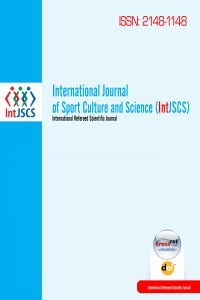The discovery of new Greeks. The cases of Gagauz in Moldova and "Pontians" in Turkey
The discovery of new Greeks. The cases of Gagauz in Moldova and "Pontians" in Turkey
-,
___
- Agtzides V. (1991, November). Report on the "Crypto-Christians" and Islamised Greeks in Turkey today. (Unpublished, in Greek)
- Agtzides V. (posted 2006, December). The Charalambides-Fotiades Group and the Pontic movement. In website Pontus and the Left [Πόντος και Αριστερά] (available at: http://pontosandaristera.wordpress.com/2006/12/25/haralampidis/#more-299, in Greek).
- Albayrak H. (2007). 1. Dünya Savaşında Doğu Karadeniz Muharebesi ve Of Direnişi. İstanbul: Babıali.
- Alexandris A. (1982). Pontic Greek Refugees in Constantinople 1922-1923: The Human Cost of the Exchange of Populations. Arheion Pontou, 37, 280-293.
- Alexander A. (1983). The attempt to create a Turkish-Orthodox Church in Cappadocia, 1921-1923. Bulletin of the Centre for Asia Minor Studies, 4, 159-199 (in Greek).
- Alexandrou D. (2005). Gagauzia: The Unknown Rums of Moldova. Reliable evidence. Thessaloniki: Erodios (in Greek).
- Ambatzis A. (ed.) ([2003]). Greek-Turkish Relations 2002. Annual Journal of Greek-Turkish and Cypriot affairs. Athens: Courier Editions (in Greek).
- Andreades Y. (1994). From Myth to Exodus. The Greeks of the Black Sea. Thessaloniki: Kyriakidis Bros (in Greek)
- Andrews P. A. (compilation and editing) with the cooperation of R. Benninghaus (1989). Greek-Speaking Muslims. Ethnic Groups in the Republic of Turkey (pp. 145-147, 373-374). Wiesbaden: Dr Ludwig Reichert.
- Asan Ö. (1996). Pontos Kültürü. İstanbul: Belge.
- Baltsiotis L. (2013). "Greeks" or "not Greeks": The case of Greek-Orthodox from Hatay in Turkey. In L. Baltsiotis & L. Ventouras (eds.), Nation beyond frontiers. Kin-state policies of the Greek state, pp. 407-438. Athens: Vivliorama
- Bilgin M. (2008 [1st edition 2007]). Karadeniz'de Postomodern Pontusculuk. Istanbul: Doğu Kütüphanesi.
- Bryer A. (1983). The Crypro-Christians of the Pontos and the Consul William Gifford Palgrave of Trebizond, Bulletin of the Centre for Asia Minor Studies, 4, 13-68.
- Chinn J. & Roper S. D. (1998). Territorial Autonomy in Gagauzia. Nationalities papers, vol. 26, 1, 87-101.
- Fotiades N. G. (1996). Journey-Memories. Constantinople- Pontus- Cappadocia. Thessaloniki: Kyriakidis Bros (in Greek).
- Fotiades K. (1993). The Islamisations of Asia Minor and Pontus Crypro-Christians. Thessaloniki: Kyriakides Bros (in Greek)
- Fotiades K. (posted 2009, December 3). The clandestine hellenism of Pontus. In http://pontos-genoktonia.gr/%CE%BF-%CE%BB%CE%B1%CE%B8%CF%81%CF%8C%CE%B2%CE%B9%CE%BF%CF%82-%CF%82-%CF%84%CE%BF%CF%85-%CF%80%CF%8C%CE%BD%CF%84%CE%BF%CF%85 (in Greek)%CE%B5%CE%BB%CE%BB%CE%B7%CE%BD%CE%B9%CF%83%CE%BC%CF%8C
- Güngör H. & Argunsah M. (1998). Gagauzlar. Istanbul: Ötüken.
- Ihrig S. (2005). Die Gagausen - Nation-building ohne Geschichte? Oder: Nation ohne nation-building? Jahrbücher für Geschichte und Kultur Südesteuropas 7, 75-99.
- Iordanoglou A. (1984-1985). The Gagauz and their origin. Bulletin of the Centre for Asia Minor Studies, 5, 391-409 (in Greek).
- Isayev M.I. (1977). National Languages in the USSR: Problems and Solutions. Moscow: Progress.
- Kostopoulos T. (2007). War and ethnic cleansing. The forgotten side of a ten-year national campaign. 1912-1922. Athens: Vivliorama (in Greek).
- Ktenides D. & Theodosioglou V. (1969). Folklore of the Thourio village in Didymoteicho Region, Thrakika, 107-145 (in Greek).
- Loukas N. (2005, October 22). Teaching Greek language among young Gagauz in Republic of Moldova during the academic year 2005-2006, (e-) memo (in Greek)
- Malkides F. (2006). National and International dimensions of Pontian Question. Athens: Gordios (in Greek).
- Neukrich C. (2002). Autonomy and Conflict Transformation: The Case of the Gagauz Territorial Autonomy in the Republic of Moldova. In Kinga G. (ed.), Minority Governance in Europe, Series on Ethnopolitics and Minority Issues [Budapest], vol. I, 105-123.
- Öztürk M. (2008). Türkiye'de Misyonerlik faaliyetleri. İsa'nın hain çocukları. İstanbul: Yeniyüzyıl.
- Papadopoulos B. E. (1942-1943). The Rights of Northern Thrace Hellenism, D΄ The Varna Case", Archives of Thracian Folklore and Language Thesaurus, vol. IX [Θ΄], 132-150.
- Pokrovskaya L.A. (1966), Гагаузский язык [The Gagauz language]. Языках Народов СССР. Vol. II.
- Poutouridou M. (1997-1998). The Of valley and the coming of Islam: The case of the Greek-speaking Muslims. Bulletin of the Centre for Asia Minor Studies. Vol. 12, 47-70.
- Tonev V. (1984). From the Past of Bulgarian-Greek Relations on the Western Black Sea Coast. Balkan Studies, 25, 2, 565-572.
- ISSN: 2148-1148
- Başlangıç: 2013
- Yayıncı: Uluslararası Bilim Kültür ve Spor Derneği (UBİKS)
Türkiye'de Sosyal Medyanın Toplumsal ve Siyasal Kullanımı Üzerine Bir Araştırma
Ahmet ÇETİNKAYA, Özgür ŞAHİN, Ali KIRIK
Eğlenceli Atletizm Antrenman Programının 12-14 Yaş Arası Çocuklarda Özgüven Düzeyine Etkisi
Erkan YARIMKAYA, Mehibe AKANDERE
Dropout Reasons in Iranian Youth Roller Skaters
Hosein HEYDARI, Linda DUFFY, Rokhsareh BADAMI, Bahman BALUCH
Nesic GORAN, Nikola MAJSTOROVIC, Nedzad OSMANKAC, Josko MILENKOSKI, Serdar USLU
Gülsüm BAŞTUĞ, Sabri METİN, Erkan BİNGÖL
13 - 16 Yaş Spor Yapan ve Spora Yeni Başlayan Çocukların Çoklu Zekâ Alanlarının Karşılaştırılması
Tamer BOZKUŞ, Zeynep EROL, Gürkan ELÇİ, Selçuk BOZKUŞ
The Function of Bazaar in the Modern World
A Different Perspective to Fine Art High School Students in Emotional Intelligence
